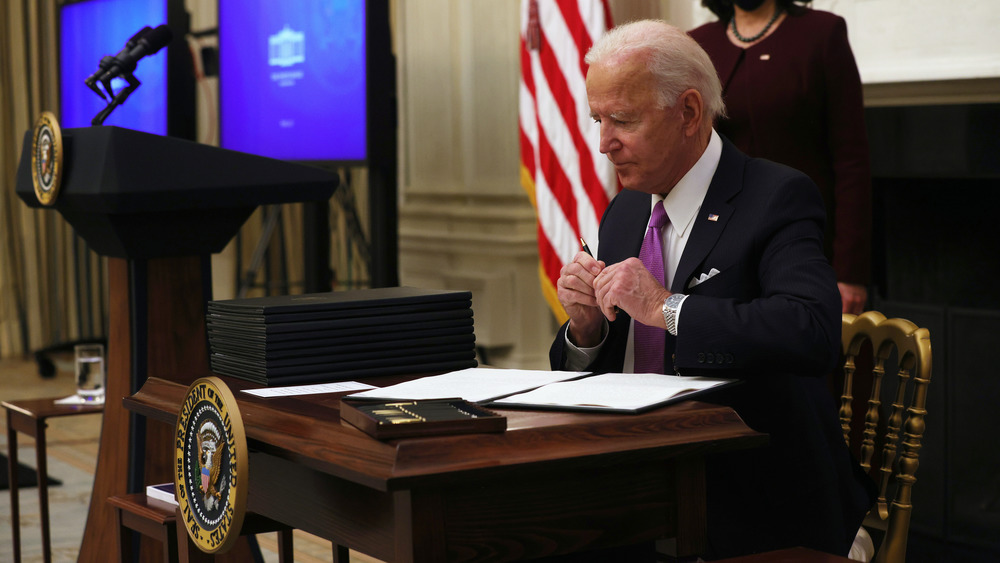Joe Biden Just Made A Big Change That Affects How Students Get Fed
Hunger Free America, an advocacy nonprofit group that aims to provide all Americans with access to nutritious food, has praised the Biden administration's decision to boost Supplemental Nutrition Assistance Program (SNAP) benefits and food benefits, via executive orders, for students who lost access to meals during the pandemic. Students will see a 15 percent benefits increase.
"We know that people who are malnourished have compromised immune systems and are thus more likely to contract and transmit Covid-19," Joel Berg, CEO of Hunger Free America, explained in a statement sent to Mashed. "We also know that, because Americans who are food insecure cannot afford the healthiest foods, they are more likely to suffer from obesity, hypertension, heart disease, and diabetes, and are thus more likely to die from Covid-19. Thus, decreasing hunger will reduce both Covid-19 infection rates and Covid-19 deaths."
This expansion is a departure from the restrictions implemented by the Trump administration in 2019. As Forbes reported, these prohibited states from expanding eligibility for SNAP beyond the federal baseline, potentially ending benefits for an estimated three million people.
The National School Lunch Program, which, as CNN explained, began in 1946, ensured that the children of families who qualify for food assistance would receive a nutritionally balanced lunch for free. Slightly better-off families would pay 40 cents at most, and it would scale from there. With schools not in session amid the pandemic, however, these school lunches became a more fraught issue. Biden's measures, then, are much needed.
Many will benefit from these actions
Reporting on the Biden announcement, Reuters wrote that roughly 29 million people don't have enough food. The sheer extent to which hunger has ravaged the US during COVID was presented by NPR in September. Estimates place the increased levels of food insecurity at around 23 percent of all households in America at points during 2020, marking an approximately 10 percent increase from 2019. One study found that worsening conditions during the pandemic exposed 27.5 percent of households with children to food insecurity, or about 13.9 million children.
Shutting down schools to stop infections simply added to the damage, as Luis Guardia, the president of the Food, Research and Action Center, pointed out to NPR: "One of the things we've noticed across the board is that households with children are more food insecure. And we believe that also has to do with school closures. So a lot of kids get their nutrition from school meals, and that's been disrupted." To help families who rely on these programs to feed their children, Reuters explains, Biden will work with the United States Department of Agriculture to increase aid.
"Because hunger makes it harder for people to get back to work, and because food aid programs boost U.S. food companies and workers, these actions to increase the federal domestic food safety net will help the nation build back the economy better," Berg said in summary. "This is a massive win for the anti-hunger movement."

